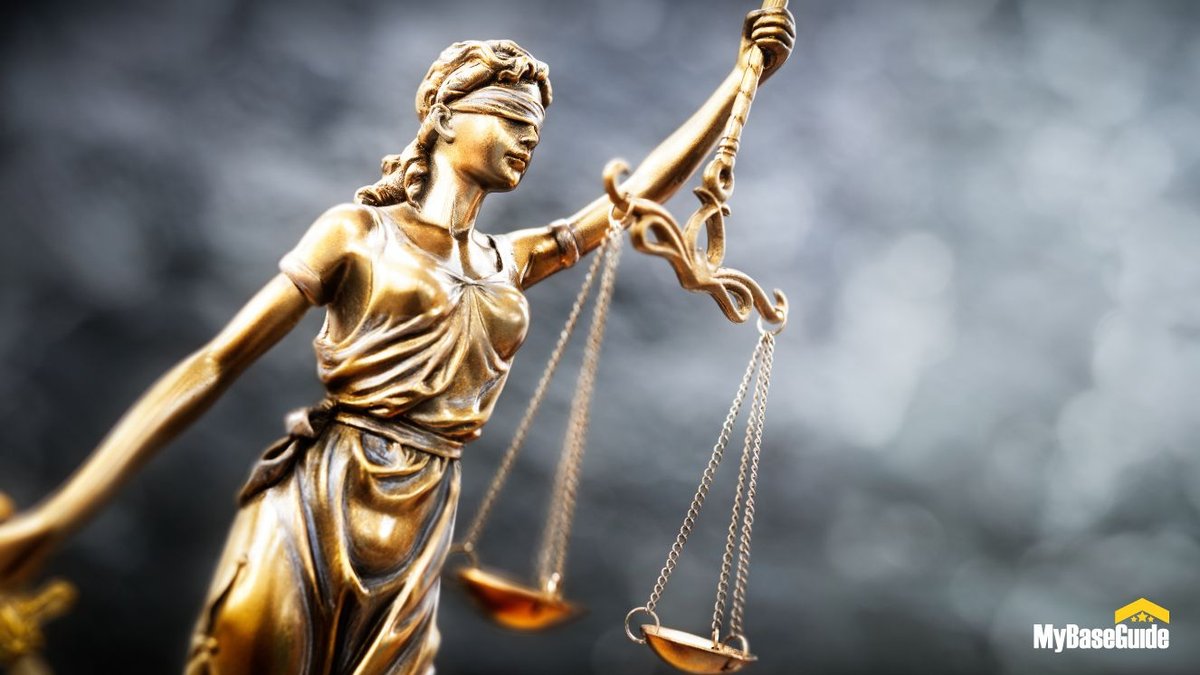HOW ARE MILITARY TRIBUNALS DIFFERENT FROM COURTS-MARTIAL?
By Buddy Blouin

Advertisement
In the world of the military, there are many different laws and regulations that must be followed, just as in civilian life. This goes for both members of the U.S. Armed Forces as well as enemy forces that our soldiers may face in combat. When someone breaks these laws, there are court systems in place to deliver judgment and punishment according to the crimes committed. Military tribunals are courts that deal with the enemy side, while courts-martial are the authority placed over American servicemen.
A Rundown of Military Tribunals
What is a military tribunal? In the United States, a military tribunal is a court system that is outside of civilian court systems and is used to hear cases and deliver justice to the enemies of the American Armed Forces during wartime. Instead of using traditional judges and juries, military officers take on different roles to prosecute, judge, and sentence enemies who are brought to trial. Military tribunal cases have been used since the Revolutionary War in America. They are not used against civilians who may break the rules of war, as a military tribunal is specifically for judging military forces. Anyone who is fighting the United States or is being held by our soldiers as a POW can be subject to a military tribunal. In modern times, many military tribunals have taken place for prisoners at Guantanamo Bay, due in large part because of the various conflicts between the United States and countries in the Middle East.The Nuremberg Trials
Arguably, some of the most infamous military tribunals in the history of the world were the Nuremberg Military Trials. Following World War II in the aftermath of the Holocaust, untold numbers of war crimes and crimes against humanity occurred. The problem afterward was delivering justice for such heinous crimes and determining who was ultimately responsible for them. Between the years 1945 and 1949, in the Palace of Justice in Nuremberg, Germany, 199 defendants were eventually put on trial. The initial military tribunals were held on an international level, as it was a worldwide conflict. However, America would go on to hold many more of its own afterward. Overall, for such an event, there can never truly be justice, but 161 people were convicted, with 37 receiving death sentences.Advertisement
The Meaning of Court-Martialed
To be court-martialed is to be served for a trial under the court-martial system. The Manual for Courts-Martial (MCM) presents the guidelines for how courts-martial operate, jurisdictions, and other things related to military law and jurisprudence. The process was established by Executive Order from the President of the United States according to the statute Uniform Code of Military Justice (UCMJ). Three types of courts-martial exist: Special, Summary, and General. There are also times in which court-martial cases may apply to civilians. An example would be a violation of martial law by a civilian who would then be sent to trial for judgment. This can occur in the United States or its occupied territories as a means of the military justice system.Courts-Martial Are Typically for Felony Cases
Getting court-martialed is a big deal. Depending on the case, military personnel can lose pay, lose their rank, be dishonorably discharged, and technically the possibility of the death penalty is on the table. Now, while this is important because severe crimes require more severe rulings, what happens to the smaller offenses (things such as petty theft or disobeying a standing order)? For these instances, the military has what is known as Non-Judicial Punishment (NJP). NJP cases will have the Commanding Officer (CO) play the role of the judge to deliver appropriate sentencing to the alleged offender. Court-martial cases are kept for serious offenses, such as felonies, and thus often have harsher punishments and repercussions that may follow ex-military personnel after their service.Understanding the Different Courts-Martial
Members of the American military have three different courts-martial that they may face depending on the severity of their crimes:- Summary Court-Martial - The least severe court-martial. Soldiers may face a loss of rank and/or pay, hard labor, and/or a month of confinement. Free attorneys are not provided, but they may be hired.
- Special Court-Martial - Every punishment available to the court-martial system besides death is possible. Crimes are judged either by a single military judge, if the defendant requests it, or a panel of at least three members and a military judge. Free attorneys are available, such as Area Defense Counsel.
- General Court-Martial - Here, felony-level crimes are judged, and no punishment allowed under the UCMJ, including death, is off-limits. You may hire an attorney or use a free one provided. The case is presented before a panel of at least five members and a military judge, although the defendant may request a trial without the panel.
Join the Conversation
Written by
Buddy Blouin
Buddy Blouin is a Contributing Writer at VeteranLife.com
Buddy Blouin is a Contributing Writer at VeteranLife.com
Calculate Your BAH
Planning your housing budget? Use our 2026 BAH Calculator to see your Basic Allowance for Housing rates for your base.
Calculate BAH Rates →Advertisement
SHARE:



